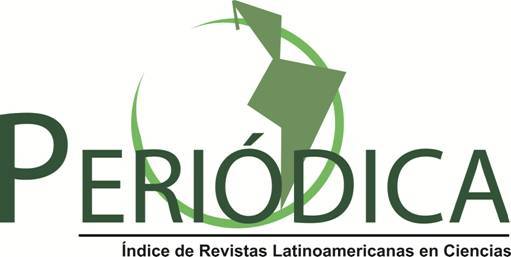Efectos del entrenamiento de resistencia acuático y en tierra sobre la composición corporal y la capacidad funcional en mujeres mayores: un estudio experimental
DOI:
https://doi.org/10.18633/biotecnia.v27.2712Palabras clave:
envejecimiento, personas mayores, ejercicio, aptitud física, resistenciaResumen
Este estudio investigó los efectos de un programa de ejercicios de resistencia acuáticos y en tierra de ocho semanas sobre la composición corporal y la aptitud funcional en mujeres mayores. Cuarenta y cinco mujeres de 65 años o más fueron asignadas aleatoriamente a grupos de ejercicio acuático (AEG), ejercicio en tierra (LEG) o control (CG), con 15 participantes en cada grupo. Después de las deserciones, 33 participantes completaron el estudio (AEG=9, LEG=14, CG=10). Los grupos de intervención realizaron sesiones supervisadas de 60 minutos, tres veces por semana durante ocho semanas. La aptitud funcional se evaluó mediante la batería de pruebas de aptitud física para personas mayores (Senior Fitness Test), la Escala de Equilibrio de Berg y la Evaluación de la Marcha y Equilibrio de Tinetti. La composición corporal se evaluó utilizando el peso corporal y el índice de masa corporal (IMC). Ambos grupos de ejercicio mostraron mejoras significativas en fuerza, flexibilidad, equilibrio, agilidad y capacidad aeróbica en comparación con el grupo control (p<0.05). El grupo LEG también mostró una disminución significativa en el peso corporal (p<0.05), pero los cambios en el IMC no fueron estadísticamente significativos. No se observaron mejoras significativas en el grupo control. En conclusión, tanto el entrenamiento de resistencia acuático como el terrestre mejoraron la aptitud funcional en mujeres mayores, siendo el ejercicio en tierra más efectivo para la reducción de peso. El ejercicio acuático puede ser más adecuado para personas con limitaciones articulares o de equilibrio. Estos hallazgos respaldan el uso de programas de ejercicio multicomponente para promover un envejecimiento saludable.
Descargas
Citas
Aquatic Exercise Association, 2017. Aquatic fitness professional manual. Champaign, IL: Human Kinetics.
Becker, B.E., 2009. Aquatic therapy: scientific foundations and clinical rehabilitation applications. PM&R, 1(9), pp.859–872. https://doi.org/10.1016/j.pmrj.2009.05.017
Berg, K., Wood-Dauphine, S., Williams, J.I. and Gayton, D., 1989. Measuring balance in the elderly: preliminary development of an instrument. Physiotherapy Canada, 41(6), pp.304–311.
Bergamin, M., Ermolao, A., Tolomio, S., Berton, L., Sergi, G. and Zaccaria, M., 2013. Water- versus land-based exercise in elderly subjects: effects on physical performance and body composition. Clinical Interventions in Aging, 8, pp.1109–1117. https://doi.org/10.2147/CIA.S44198
Buitrago-Restrepo, C.M., Patiño-Villada, F.A. and Arango-Paternina, C.M., 2024. Effects of aquatic exercise on physical performance in older adults: a systematic review and meta-analysis. Journal of Aging and Physical Activity, 32(5), pp.651–667. https://doi.org/10.1123/japa.2023-0192
Colado, J.C., Garcia-Masso, X., Rogers, M.E., Tella, V., Benavent, J. and Dantas, E.H., 2012. Effects of aquatic and dry land resistance training devices on body composition and physical capacity in postmenopausal women. Journal of Human Kinetics, 32, pp.185–195. https://doi.org/10.2478/v10078-012-0035-3
Colado, J.C., Tella, V., Triplett, N.T. and González, L.M., 2009. Effects of a short-term aquatic resistance program on strength and body composition in fit young men. Journal of Strength and Conditioning Research, 23(2), pp.549–559. https://doi.org/10.1519/JSC.0b013e31818eff5d
Cruz-Jentoft, A.J. and Sayer, A.A., 2019. Sarcopenia. Lancet, 393(10191), pp.2636–2646.
Dalamitros, A.A., Toupektsi, E., Alexiou, P., Nousiou, S., Clemente-Suarez, V.J., Tornero-Aguilera, J.F. and Tsalis, G., 2024. The effectiveness of water- versus land-based exercise on specific measures of physical fitness in healthy older adults: an integrative review. Healthcare (Basel), 12(2), p.221. https://doi.org/10.3390/healthcare12020221
Deng, Y., Tang, Z., Yang, Z. et al., 2024. Comparing the effects of aquatic-based exercise and land-based exercise on balance in older adults: a systematic review and meta-analysis. European Review of Aging and Physical Activity, 21(13). https://doi.org/10.1186/s11556-024-00349-4
Fiatarone, M.A., Marks, E.C., Ryan, N.D., Meredith, C.N., Lipsitz, L.A. and Evans, W.J., 1990. High-intensity strength training in nonagenarians: Effects on skeletal muscle. JAMA, 263(22), pp.3029–3034.
Irandoust, K. and Taheri, M., 2015. The effects of aquatic exercise on body composition and nonspecific low back pain in elderly males. Journal of Physical Therapy Science, 27(2), pp.433–435. https://doi.org/10.1589/jpts.27.433.
Kanitz, A.C., Delevatti, R.S., Reichert, T., Liedtke, G.V., Ferrari, R. and Almada, B.P. et al., 2015. Effects of two deep water training programs on cardiorespiratory and muscular strength responses in older adults. Experimental Gerontology, 64, pp.55–61. https://doi.org/10.1016/j.exger.2015.02.013
Kieffer, H.S., Lehman, M.A., Veacock, D. and Korkuch, L., 2012. The effects of a short-term novel aquatic exercise program on functional strength and performance of older adults. International Journal of Exercise Science, 5(4), pp.321–333. https://doi.org/10.70252/RNSN4831
Liu, C.J. and Latham, N.K., 2009. Progressive resistance strength training for improving physical function in older adults. Cochrane Database of Systematic Reviews, (3), CD002759. https://doi.org/10.1002/14651858.CD002759.pub2
Martínez-Rodríguez, A., Cuestas-Calero, B.J., García de Frutos, J.M., Yáñez-Sepúlveda, R. and Marcos-Pardo, P.J., 2022. Effect of aquatic resistance interval training and dietary education program on physical and psychological health in older women: Randomized controlled trial. Frontiers in Nutrition, 9, 980788. https://doi.org/10.3389/fnut.2022.980788
Oh, S.J. and Lee, S.H., 2021. Comparing durability of water- and land-based exercise benefits among older adults in South Korea: a randomized controlled trial with 1-year follow-up. Journal of Back and Musculoskeletal Rehabilitation, 34(5), pp.745–755. https://doi.org/10.3233/BMR-200109
Prado, A.K.G., Reichert, T., Conceição, M.O., Delevatti, R.S., Kanitz, A.C. and Kruel, L.F.M., 2022. Effects of aquatic exercise on muscle strength in young and elderly adults: a systematic review and meta-analysis of randomized trials. Journal of Strength and Conditioning Research, 36(5), pp.1468–1483. https://doi.org/10.1519/JSC.0000000000001595
Rajesh, P.K., 2023. Effect of water exercises, plyometric exercises and a combination of both on selected physical variables, physiological variables and performance of triple jumpers. PhD thesis. University of Calicut.
Rikli, R.E. and Jones, C.J., 2013. Senior Fitness Test Manual. Champaign, IL: Human Kinetics.
Ruangthai, R., Phoemsapthawee, J., Makaje, N. and Phimphaphorn, P., 2020. Comparative effects of water- and land-based combined exercise training in hypertensive older adults. Archives of Gerontology and Geriatrics, 90, p.104164. https://doi.org/10.1016/j.archger.2020.104164
Suomi, R. and Collier, D., 2003. Effects of arthritis exercise programs on functional fitness and perceived activities of daily living measures in older adults with arthritis. Archives of Physical Medicine and Rehabilitation, 84(11), pp.1589–1594. https://doi.org/10.1053/s0003-9993(03)00278
Sun, P., Yang, J., Li, N. et al., 2025. Effects of aquatic exercise compared with land-based exercise on the body composition and function of older adults with sarcopenia: protocol for a randomised controlled trial. BMJ Open, 15, e085474. https://doi.org/10.1136/bmjopen-2024-085474
Takeshima, N., Rogers, M.E., Watanabe, E., Brechue, W.F., Okada, A., Yamada, T. et al., 2002. Water-based exercise improves health-related aspects of fitness in older women. Medicine and Science in Sports and Exercise, 34(3), pp.544–551. https://doi.org/10.1097/00005768-200203000-00024
Tinetti, M.A., Richman, D. and Powell, L., 1990. Falls efficacy as a measure of fear of falling. Journal of Gerontology, 45(4), pp.239–243.
Yüzlü, V., 2014. Comparison of the effects of aquatic and land-based exercises on functional capacity and quality of life in geriatric age groups. Master’s thesis. Hacettepe University, Institute of Health Sciences.
Descargas
Publicado
Cómo citar
Número
Sección
Licencia
Derechos de autor 2025

Esta obra está bajo una licencia internacional Creative Commons Atribución-NoComercial-CompartirIgual 4.0.
La revista Biotecnia se encuentra bajo la licencia Atribución-NoComercial-CompartirIgual 4.0 Internacional (CC BY-NC-SA 4.0)
















_(2).jpg)








